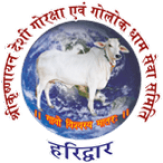Cause Area
Primary Sectors
Secondary Sectors
Financials
Geographies Served
Programs
-
Protection
Currently, more than 18,000 poor Desi Indian cows and bulls, along with their offspring, are being housed in our Gaurakshashalas. These animals are brought in by the government, farmers, police, NGOs, and several other entities. The majority of these are unintentional or saved/rescued from different places. We bestow a happy second life upon these cows. We provide them with food, housing, and total care. We provide them with on-site medical care.
-
Dry Fodder Storage
We can store about 40 lakh kg of dry husk in our enormous dry fodder (husk) storage house. Because it's more affordable and readily accessible in April through June than it is in other months, husk is a popular choice. Since it is the primary element in cow food, we are required to store it. Every year, we need at least 90 lakh kg of dry grain (husk).
Leadership Team
-
Surendar Agarwal
Demographics & Structure
-
Organisation Strength
None
Registration Details
-
PAN Card
AAGAS2376C
-
Registration Number
File-GHD0810 RegNo 257/2015-16
-
CSR Form 1
Not Available
-
80G
AAGAS2376CF20206
-
12A
AAGAS2376CE20206
-
FCRA
347910039
About
-
Headquarters
Haridwar, Uttarakhand
-
Since
2010
Impact
As of the latest information, the organization shelters and cares for over 21,000 stray and destitute Desi Indian Cows, bulls, and their offspring, brought in through various channels such as police, government, NGOs, and farmers.
Vision and Mission
The vision is to protect and conserve indigenous Desi Gauvansh (cows and bulls) while promoting sustainable practices that benefit both the animals and the community.
Political & Religious Declarations
-
Political Affiliation
-
Religious Affiliation
Location
-
Offices in Cities
Haridwar
Other Details
-
Type
Non-profit
-
Sub Type
Society
Technology Adoption
-
SOC 2 Compliant
No
-
Financial Management
-
Beneficiary Management



